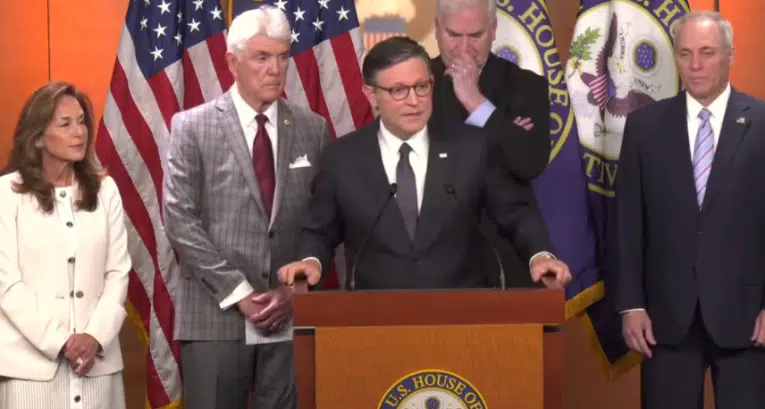 By Rebekah Rast — When California passed the parent trigger law in 2010, one California Federation of Teachers newsletter referred to it as a “lynch mob provision.”
By Rebekah Rast — When California passed the parent trigger law in 2010, one California Federation of Teachers newsletter referred to it as a “lynch mob provision.”
It’s safe to say this California law, with similar versions of it found in Mississippi, Louisiana and Texas, is upsetting to the teachers unions. Why?
The core of this law allows parents at a consistently failing school to strip the power away from the teachers unions and school district. If at least 50 percent of parents are on board proposals can be made to force the school district to hire a new staff, change leadership, convert the school into a charter or even close the school entirely.
It’s understandable why teachers unions and school districts might not be too keen on this law. However, it opens a huge door to parents whose children are enrolled in failing schools. It gives them a seat at the table with the teachers, unions and school district—exactly where they belong.
This is the messaging of Walden Media’s new film “Won’t Back Down” in theaters now. This film encapsulates the battle fought against the school district and teachers union using the parent trigger law to help turn around a failing school. Maggie Gyllenhaal stars as a mom whose daughter is struggling in the school, and Viola Davis as a teacher who knows the school can do better.
“A lot of people say this is an anti-union movie and I disagree,” said Chip Flaherty, executive vice president of Walden Media, during a presentation at the Heritage Foundation. “I think it’s anti-complacency. I think it’s anti-status quo that’s not working and I think it’s pro-parent. Right now parents don’t have a seat at the table. Parents need a voice and they really need a saber to rattle to make sure that they’re listened to.”
Hollywood does its best to portray the breadth of the battle against the bureaucracy of the school district and strong arm of the union when attempting to take over the school. However, within a movie time constraint it was not a long-fought battle, with success for Adams elementary school achieved in only a few months.
In real life situations of parents taking advantage of this law, the process is a little different. Parents of children who attend Desert Trails Elementary in Adelanto, Calif., can attest that the process is much longer and much harder.
Businessweek highlights that 12 of the 13 schools in this district are failing. And last year, “68 percent of graduating sixth graders failed proficiency tests in math and English-language arts.”
Therefore using California’s parent trigger law, parents banned together and took action. In July, a superior court judge upheld the group’s petition. It seemed like victory was theirs. However, district officials are refusing to let go—stalling further efforts by this group. With another school year underway at Desert Trails, the parents are readying for another court battle.
Doreen Diaz, whose daughter attends Desert Trails and has been instrumental in the fight to take back the school, said of the recently released “Won’t Back Down” film, “I hope that more people see it and are inspired to stand up and fight,” Businessweek quotes her as saying. She added that the movie also “makes the process look a lot easier than it really is.”
While this film ruffles the feathers of teachers unions and maybe even some teachers, any movie that brings children’s education to the forefront creates a discussion worth having.
The Heritage Foundation reports that public school per-student spending is at an all-time high with average spending exceeding $11,400 this year. SAT scores are at a 40-year low. And Heritage’s education expert Lindsey Burke says, “graduation rates have been stagnant since the 1970s, reading and math achievement has been virtually flat over the same time period, and American students still rank in the middle of the pack compared to their international peers.”
The underlying messaging of this film wasn’t to point the finger at bad teachers or teachers unions, but to show the lack of options for parents. Gyllenhaal’s daughter in the film is dyslexic, in the 3rd grade and can’t read. She can’t afford private school tuition and didn’t win the lottery for a coveted spot in the nearby charter school. She was stuck and so was her daughter.
Though it’s a fictitious movie, it is likely not that uncommon of a story. A parent should have options in their child’s education. Sometimes the best option is a union-controlled public school, sometimes it’s a private school and other times a charter school.
As the global market and all nations become more advanced, education needs to be the priority.
Laws like the parent trigger law—though not perfect and certainly not easy—give more options to parents.
“Won’t Back Down” creates another necessary conversation about the educational framework within America; one that encourages teachers to teach, parents to be involved and school districts to listen.
Rebekah Rast is a contributing editor to Americans for Limited Government (ALG) and NetRightDaily.com. You can follow her on twitter at @RebekahRast.





